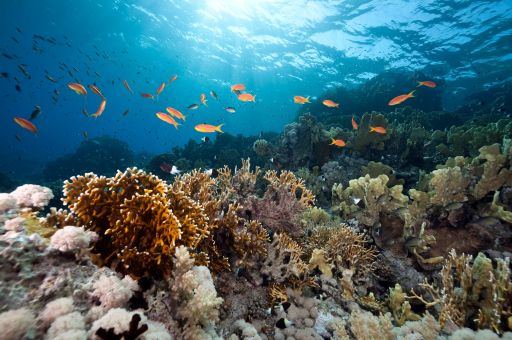The instrument has been deposited at the United Nations headquarters in New York (United States). Spain is the first country in Europe to ratify the treaty.
Spain has today ratified the Treaty on Marine Biological Diversity in Areas beyond National Jurisdiction (High Seas Treaty or BBNJ) with the deposit of the instrument by the Ministry of Foreign Affairs, European Union and Cooperation (MAEC) at the United Nations headquarters in New York.
Spain thus becomes the first European Union country to ratify this agreement. This was announced by the Vice-President of the Government and Minister for Ecological Transition and the Demographic Challenge, Sara Aagesen, at a press conference in which she stressed the importance of this ‘historic agreement’. ‘Today our country is once again demonstrating, through actions, its commitment to the environmental agenda, to multilateralism and to a global project in which the search for prosperity for all goes hand in hand with the necessary protection of global public goods,’ the Vice-President said.
TDB keeps you informed. Follow us on Facebook, Twitter and Instagram
Spain ratifies the Global Oceans Treaty
As the Minister of Foreign Affairs, European Union and Cooperation, José Manuel Albares, has stressed in various speeches, Spain is once again demonstrating a coherent foreign policy, with leadership in the field of climate diplomacy and reinforcing rules-based multilateralism, the cornerstones of Spanish foreign action. The MAEC has actively participated in the process of adopting the BBNJ, facilitating its ratification in a very short period.
Global Oceans Treaty
The BBNJ establishes a robust legal framework for all activities in the ocean and seas: it regulates human activities in the high seas, allows for their protection through the designation of marine protected areas and establishes a mechanism for equitably sharing the benefits derived from the exploitation of marine genetic resources. It is a regulatory development of the environmental aspects of the United Nations Convention on the Law of the Sea (UNCLOS).
Specifically, this framework includes a commitment to declare 30% of the area of the high seas a protected area by 2030. The treaty will therefore play a crucial role in achieving the global 30×30 target agreed during the Kunming-Montreal Global Biodiversity Framework.
Ratification by at least 60 countries is required for the treaty to enter into force. Once that number is reached, 120 days must pass. Chile, which is bidding to host the BBNJ, was the first country to ratify. It did so a year ago, on 20 February 2024. According to the UN register, in addition to Spain, 15 countries have already ratified: Bangladesh, Barbados, Belize, Chile, Cuba, Maldives, Mauritius, Micronesia, Monaco, Palau, Panama, Seychelles, Singapore, St. Lucia, Timor-Leste.
Background
Prime Minister Pedro Sánchez signed the BBNJ in September 2023, when Spain was chairing the Council of the European Union. Following this signature, the Ministry for Ecological Transition and the Demographic Challenge (MITECO) and the MAEC submitted the agreement to refer the BBNJ to the Council of Ministers on 9 July 2024. Subsequently, once the authorisation of the Cortes had been obtained, the MAEC submitted the agreement to formalise the ratification with the deposit of the instrument today, 4 February 2025.
